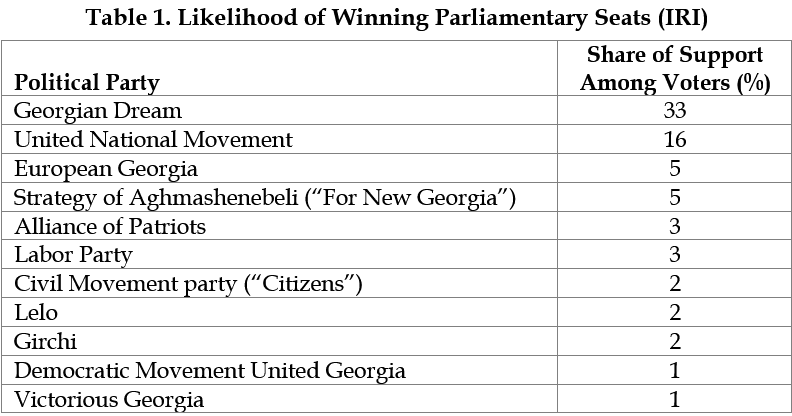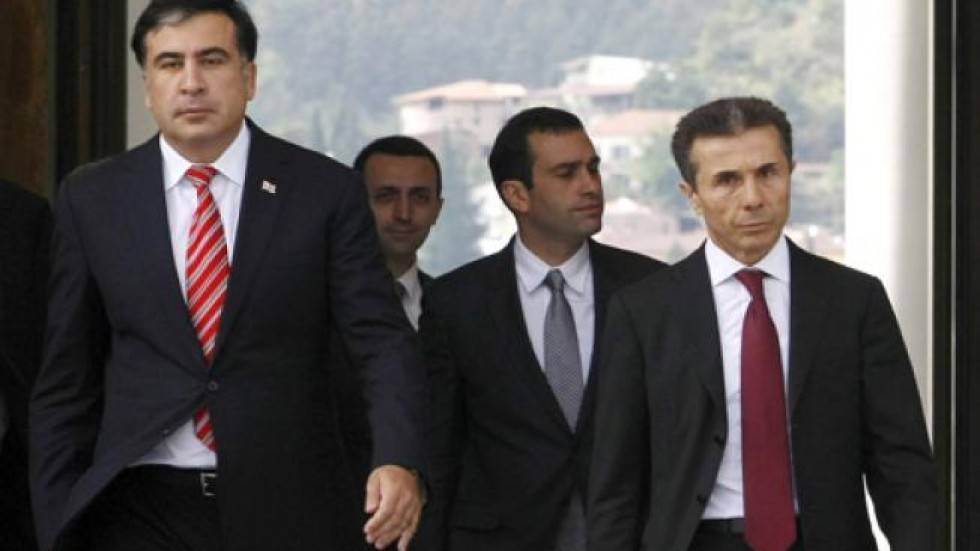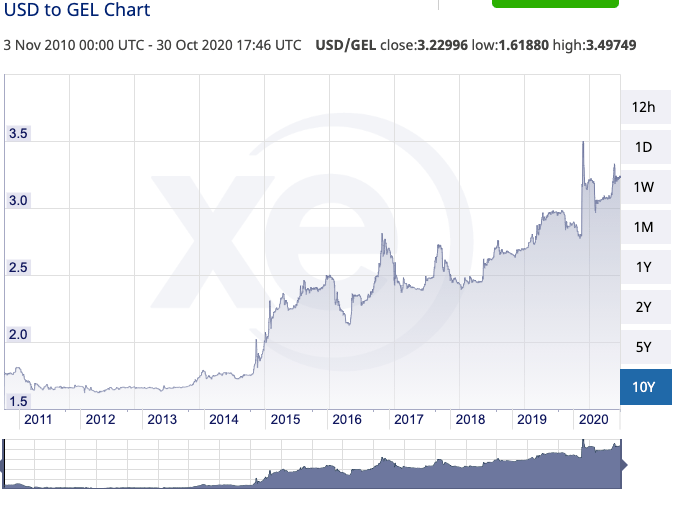October 31, 2020 is a remarkable day in the country – the day of Georgian parliamentary elections. On this day Georgia will conduct its first predominantly proportional elections which brings the election process under the spotlight.
The parliamentary elections are face to face with a global pandemic. The virus is impacting the whole process : starting from voting campaign strategies to polling station protocols, and will potentially affect voters’ behavior as well. Recent Constitutional amendments and legislative reforms in July 2020 have set significant changes and put the country on the democratic crossroad. In the following article we will provide all the relevant facts, perspectives of the new electoral framework and other information around the subject.
What has changed in electoral system in Georgia?
Georgia went through a long and painful process before the Georgian Parliament approved constitutional amendments and election code reforms.
The 10th convocation parliament will be elected based on the new electoral system. The major electoral framework changes look like this:
- The parliamentary elections will be held in a system close to proportional: 120/30 instead of 77/73 ratio – 120 deputies out of 150 will be elected proportionally and 30 – by majoritarian system; The reduced number of majoritarian electoral districts will weaken the position of governing party because, in almost all majoritarian districts, government candidates always won.
- The threshold for winning parliamentary seats has been reduced from 5 to 1 percent. To compare, in the 2016 parliamentary elections, only 3 parties were able to pass the 5 percent threshold: Georgian Dream, United National Movement, and Alliance of Patriots. Under the new framework and 1 percent barrier, the little parties are more alike to receive parliamentary mandates.
Who will have a right to form a government?
After the legislation reforms, a party that receives at least 40.5% of the total votes in proportional elections will obtain a right to form the government.
This leads Georgian parliament to a reality where a majority is not required to form a government. 40.5% equals 48 seats in parliament, however, 76 seats bring a power to form the government in a 150-member parliament: a party that gains the 40.5% threshold will need an additional 28 seats to form a government. The winning party should either get 28 seats from the majoritarian districts, or think about uniting with another party (creating coalition).
Political Parties in Georgia
During the registry period the CEC ( Georgian Central Election Commission) received applications from 78 parties, and registered 50 electoral subjects.However, there are leading political parties (Georgian Dream and United National Movement as well as smaller parties such as European Georgia, Labor Party, Girchi etc.) in the country, which are believed to be the real role players or are popular among certain segments of the population.
According to the IRI survey, there are 11 political parties which have a chance to overcome with the 1% threshold:

Orientations and Views of the Popular Parties in Georgia
Most of the Georgian political parties are pro-Western and support the country’s
integration in the EU.
Georgian Dream positions itself as social-democratic while the United National Movement claims to be centrist/center-right, Alliance of Patriots leans ultra-nationalist, European Georgia is liberal while ultra librarian party Girchi stands for its ground as well.
Main Scenes from the Pre-Voting Days
According to all polls, the currently governing Georgian Dream party has the largest possibility of getting a high number of votes in proportional elections.
The strategy of the Georgian Dream has not changed this time as well — the whole strategy is based on opposing the UNM (United National Movement) and its leader particularly — Mikheil Saakashvili.
At the same time, the UNM presented the candidate of the prime minister, and it is not a surprise to see Mikheil Saakashvili as the one and only option.
Has the Opposition been United?
The opposition has not formed an election coalition for this election. However, most of the opposition parties have reached important agreements both on the electoral process and on Future plans to be taken into action in case of victory. The agreement has also been made about formation of a coalition government (we already mentioned that 76 seats are needed to form a government).
The so-called United Opposition includes around thirty large and small parties: National Movement, European Georgia, Labor Party, Girchi, etc.
The opposition has made several agreements:
They have nominated mutual candidates in all majoritarian districts of Tbilisi. As for the regions, here every party has their own candidate.
As simple and democratic as the agreement about creating a collaborative government might sound, it will be difficult to apply in reality — The first big disagreement already arose when the “United Opposition” couldn’t agree on the possible prime minister candidate.
What do the Polls Say?
The poll results depend on who provides it: pro-governmental channel Imedi or pro- opposition – Mtavari Arkhi . However, in both cases the ruling party – Georgian dream is ahead of all the other parties. But the difference is shown in percentages.
A poll for the opposition Mtavari Arkhi channel was prepared by IPSOS. According to this survey, people were being asked “who you would vote for if the parliamentary elections were held today?” and the numbers look optimistic for the opposition:
- Georgian Dream – 40%
- UNM and United Opposition – 33%
- Strategy Agmashenebeli – 7%
- European Georgia – 7%
- Lelo – 4%
- Labor Party – 2%
- Girchi – 2%
- Alliance of Patriots – 2%
- United Georgia – 1%
- Citizens – 1%
- Other – 1%
Along with this, Imedi released a poll conducted by Public Opinion Strategies, the topic of the survey remains the same, however, Georgian Dream (GD) has 56% of votes, UNM and United Opposition- 19.9% and etc.
The two main role players are still visible, however the obvious winner is not.
Would the numbers have changed if the opposition had united for the proportional elections? The answer to that question is – probably yes. But who wants to share the real power?

Georgian Dream VS. United National Movement
Both GD and UNM have ruled the country for almost the same period of time. Governmental authorities often “win an argument” by pointing their fingers at the “abusive 9 year regime” by the United National Movement. However, they forget about how long they have been governing Georgia — 8 years already.
The ruling Georgian Dream party put good effort in controlling COVID-19. Hopes were set that the narrative would deliver them a solid parliamentary majority, but the attitude towards voters and the poll results do not promise anything.
The contest is odd though: Georgia has a de facto leader (Bidzina Ivanishvili) who is not actually running for office, but you can still find his smiling face on the Georgian Dream campaign billboards. On one side is Bidzina Ivanishvili, a billionaire and a former prime minister who now prefers to stay in backstage as Georgian Dream’s chairman.
On the other side stands Mikheil Saakashvili — a former president of Georgia who was convicted and sentenced in absentia for abuse of power — a ruling he and the United National Movement believe was politically motivated. Saakashvili has left the country 7 years ago and is planning a comeback to Georgian politics as a prime minister. Truth is, he still remains a very popular figure among the voters of the United National Movement.
The Insights of Georgian Dream Ruling
Besides the battle between two persons, the reality is that even before the pandemic breakout, the ruling Georgian Dream party was on a shaky political ground: only 20 % of the voters supported the party. The reasons were numerous: poor economy, the party’s inability to pass the legislative reforms, and the Georgian Parliament hosting a speech by Russian Member of Parliament communist and anti- Georgian person — Sergei Gavrilov.
On top of that, between 100,000 and 200,000 Georgians have lost their source of stable income during the pandemic, and not all of them have qualified for temporary government assistance.
The moves of the government through past 8 years has been seen in the official exchange rate of national currency : just to compare in 2012 1USD =1.65 GEL and today, in 2020 1USD=3.30 GEL.
The Georgian Dream government did make some changes: basically the changes can be seen in the renovated streets of Tbilisi and a few roads around the country.
More and more people are asking whether the government used the time spent in lockdown to effectively manage the country’s economic problems, education lockdown that still continues, and healthcare system.
Still the answer might be a pointing finger. But if Georgian Dream will win the proportional elections it will become the first party in the country’s history, which was elected 3 times in a row.(12 years as a governing party)

The Impact of Covid-19 Pandemic on Elections
The pandemic is creating great uncertainty worldwide, impacting Georgia’s elections by threatening to decrease voter turnout and raise questions about transparency.
With an increasing number of virus cases, the fear that turnout could be much lower than normal is realistic.
Moreover, thousands of voters will not be able to vote on the election day. These are patients infected with Covid-19, as well as voters in quarantine and self-isolation.
The CEC has released the registration for above mentioned persons and special voting boxes will be delivered to their venue.
However, the problem is that the deadline for that registration was till the 27th of October 18:00. What about those who were tested positive for coronavirus after that time? The terrific answer is that they will not be on the special list and will not be able to use their rights to vote and will have to rely on the rest of the voters.
When will we know the results?
The official results of Georgian parliamentary elections will be announced on the next day of the election day.
However, pre-results will be counted informally after the election districts provide the CEC with the local results. This must create overall vision of the election results.
Conclusion
Georgia is considered as the most democratic country in the South Caucasus region. With never ending protests, young people fighting for liberty and freedom, this country needs a fundamental change. The voters are still confused : there is no new blood, like there was in 2003 when the Rose Revolution took place. People do not need revolutions by its simplest meaning: they need reforms and democratic changes through the developments.
Georgian government, political parties, the electoral administration, civil society, the media, domestic and international observer organizations, and the diplomatic community are all engaged in the upcoming voting day. The predictions are not reliable as no one knows what happens in that little voting cabins.
If you are planning to move to Georgia, Reading this Article is a must : How to move to Georgia?



